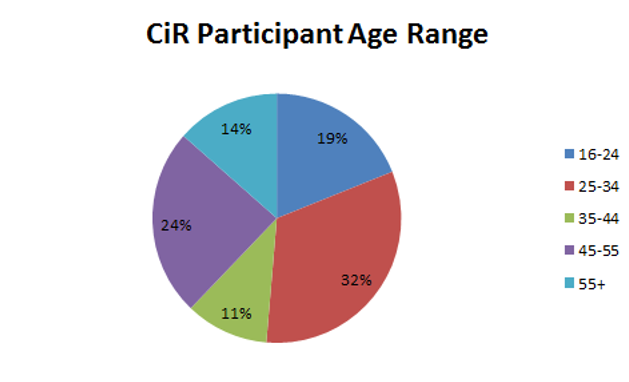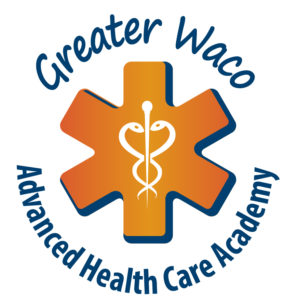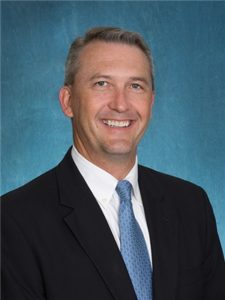(The Heart of Texas P-20 Council includes representatives from K-12 education, higher education and employers. They meet regularly to help coordinate efforts to launch our young people into productive lives as workers and citizens. This post is one in a monthly series of posts intended to share information about the work of this important group in our community. For more posts in this series, click here: P-20 education.)
by Christine Holecek
What is Labor Market Information (LMI)? Some people believe the LMI is largely made-up information. But it is actually information that is pulled from premier data sites. National data is found at the bureau of labor and statistics http://www.bls.gov. State data is found through the Texas Workforce Commission, Tracer 2 website http://www.tracer2.com. Labor Market Information is broken down in codes. The industry codes are called NAICS, Occupational Codes are called SOC, and Training Codes are referred to as CIP.
NAICS, the North American Industry Classification System, is the standard used by Federal agencies in classifying businesses for collecting, analyzing, and publishing statistical data related to the U.S. business economy. SOC, Standard Occupation Classification – used by Federal agencies to classify workers into occupational categories for collecting, calculating, disseminating data. Workers are classified into one of over 820 occupations. Occupations are combined to form 23 major groups, 96 minor groups, and 449 broad occupations. Each broad occupation includes detailed occupation(s) requiring similar job duties, skills, education, or experience. CIP, Classification of Instructional Programs – used by the National Center for Education Statistics to collect, collate, analyze, and report full and complete statistics on the condition of education. The CIP functions as a taxonomic scheme to support the tracking, assessment, and reporting of fields of study and program completion activity.
 What does the demand for talent look like in the HOT Workforce Area? Waco is considered the Metropolitan Statistical Area for Heart of Texas (HOT) Workforce Solutions. LMCI analysts and users are particularly interested in K-12 educational programming because it is a pipeline to future employees. A list of targeted occupations can be found at http://www.yestoyouth.com/careers.html. Careers from Aviation to Welding can be found on the targeted occupation list. In demand career clusters include: Transportation, Manufacturing, Health Care, Business, Information Technology, Law and Public Safety. Below is the occupational projections from the Heart of Texas which can be found at http://www.tracer2.com/admin/uploadedPublications/2031_13_HeartOfTexas_2012-2022.pdf
What does the demand for talent look like in the HOT Workforce Area? Waco is considered the Metropolitan Statistical Area for Heart of Texas (HOT) Workforce Solutions. LMCI analysts and users are particularly interested in K-12 educational programming because it is a pipeline to future employees. A list of targeted occupations can be found at http://www.yestoyouth.com/careers.html. Careers from Aviation to Welding can be found on the targeted occupation list. In demand career clusters include: Transportation, Manufacturing, Health Care, Business, Information Technology, Law and Public Safety. Below is the occupational projections from the Heart of Texas which can be found at http://www.tracer2.com/admin/uploadedPublications/2031_13_HeartOfTexas_2012-2022.pdf
How does LMI meet the need of CTE Students? LMI Matters! It aims to help develop awareness of labor market information (LMI) and to show how it can be used effectively. It is for anyone who is helping adults or young people to explore opportunities for work or further learning. Our K-12 school system is training a future workforce that helps with the recruitment and retention of employers in our region. The HOT P-20 system includes pre-K through career as the pipeline of students that move on to post-secondary after high school graduation. The Greater Waco Chamber of Commerce has identified a talent pool of future employees and encourages training the following targeted industries: Advanced Manufacturing, Aerospace and Defense, Supply Chain Management, Health Care, Professional and Financial Services. Independent School Districts need to focus on the Labor Market Information and the targeted industries to ensure that we prepare our students today for jobs needed by tomorrow’s employers.
 This Act Locally Waco blog post was written by Christine Holecek. Christine is an Education Specialist at Education Service Center Region 12 in Waco. She has worked in the area of Adult Education and Career & Technical Education for the past 25 years. She earned an AAS degree from MCC, a BAAS and Master’s Degree from the University of North Texas and is currently enrolled in the Doctoral Program in Educational Leadership and Policy Studies at Tarleton State University.
This Act Locally Waco blog post was written by Christine Holecek. Christine is an Education Specialist at Education Service Center Region 12 in Waco. She has worked in the area of Adult Education and Career & Technical Education for the past 25 years. She earned an AAS degree from MCC, a BAAS and Master’s Degree from the University of North Texas and is currently enrolled in the Doctoral Program in Educational Leadership and Policy Studies at Tarleton State University.
The Act Locally Waco blog publishes posts with a connection to these aspirations for Waco. If you are interested in writing for the Act Locally Waco Blog, please email [email protected] for more information.
By Christine Holecek
Groundhog Job Shadow Day is a unique initiative dedicated to giving kids job  shadowing experiences. Groundhog Job Shadow kick-off day for 2016 will be February 2. On that day we will officially get going started on what we hope will be a spring blooming with job-shadowing opportunities in the Heart of Texas. The idea is to give more of our Waco area students opportunities to “shadow” a workplace mentor as he or she goes through a normal day on the job. This gives the student a chance to get an up-close look at how skills learned in school relate to the workplace.
shadowing experiences. Groundhog Job Shadow kick-off day for 2016 will be February 2. On that day we will officially get going started on what we hope will be a spring blooming with job-shadowing opportunities in the Heart of Texas. The idea is to give more of our Waco area students opportunities to “shadow” a workplace mentor as he or she goes through a normal day on the job. This gives the student a chance to get an up-close look at how skills learned in school relate to the workplace.
 Groundhog Job Shadow Day is the joint effort of the Heart of Texas P-20 Council, Greater Waco Chamber of Commerce, Waco Business League, and Prosper Waco. McLennan Community College, Texas State Technical College and school districts in the Heart of Texas Region are also partners promoting this event.
Groundhog Job Shadow Day is the joint effort of the Heart of Texas P-20 Council, Greater Waco Chamber of Commerce, Waco Business League, and Prosper Waco. McLennan Community College, Texas State Technical College and school districts in the Heart of Texas Region are also partners promoting this event.
Job Shadowing is a Win-Win situation for all involved. For students it answers the age old question “Why do I have to learn this?” Shadowing demonstrates the importance of academics in reaching college and career goals. Shadowing also motivates students to learn by demonstrating the tangible application of classroom lessons.
For employers, Job Shadowing helps build a future workforce. Shadowing shows students career possibilities in different industries. Also the employee mentors get the feeling of personal satisfaction that comes from mentoring a young person. This opportunity offers a chance to share knowledge and skills and to help a child become a successful adult. Sometimes shadowing even leads to a long-term mentoring relationship.
Whether you are an employer, volunteer or teacher, participating in Groundhog Job Shadow Day is an easy and rewarding experience. Getting involved in Groundhog Job Shadow Day will only take a few hours of your time.
If you are an educator or an employer who would like to get involved, you can contact Christine Holecek at [email protected]. The HOT P-20 has posted some helpful job shadowing documents for you to share at: http://tinyurl.com/zynwu2r
For more information about the HOT P-20 Groundhog Job Shadow Day, please contact [email protected]
 This Act Locally Waco blog post was written by Christine Holecek. Christine is an Education Specialist at Education Service Center Region 12 in Waco. She has worked in the area of Adult Education and Career & Technical Education for the past 25 years. She earned an AAS degree from MCC, a BAAS and Master’s Degree from the University of North Texas and is currently enrolled in the Doctoral Program in Educational Leadership and Policy Studies at Tarleton State University.
This Act Locally Waco blog post was written by Christine Holecek. Christine is an Education Specialist at Education Service Center Region 12 in Waco. She has worked in the area of Adult Education and Career & Technical Education for the past 25 years. She earned an AAS degree from MCC, a BAAS and Master’s Degree from the University of North Texas and is currently enrolled in the Doctoral Program in Educational Leadership and Policy Studies at Tarleton State University.
The Act Locally Waco blog publishes posts with a connection to these aspirations for Waco. If you are interested in writing for the Act Locally Waco Blog, please email [email protected] for more information.
By Kaylah Johnson
In just 4 months of employment, I have fallen in love with Goodwill. When most individuals think of Goodwill, they think of retail stores or maybe they find themselves humming Macklemore’s song Thrift Shop. While our retail stores are well known for their bargains, it’s our Mission Services efforts that really give me the warm fuzzies. Specifically, it’s the Careers in Retail program that gives me a sense of fulfillment and allows me to achieve my personal mission of stimulating growth in my community by providing encouragement, guidance, and education to the individuals and organizations that reside within it.
Now here is the textbook description of Careers in Retail…
 “Careers in Retail (CiR) is a no-cost program that prepares entry-level employees to move up to rewarding, higher-paying jobs and lasting careers in the retail, restaurant, and hospitality industries. This is achieved through remedial, soft skills, and occupational training that equips our clients with the necessary tools to turn their entry-level jobs into mid-level careers. This initiative is funded by the Walmart Foundation and executed by 8 select Goodwill’s throughout the U.S. This initiative is built upon Heart of Texas Goodwill’s 60 years of successful job training programs in our community.”
“Careers in Retail (CiR) is a no-cost program that prepares entry-level employees to move up to rewarding, higher-paying jobs and lasting careers in the retail, restaurant, and hospitality industries. This is achieved through remedial, soft skills, and occupational training that equips our clients with the necessary tools to turn their entry-level jobs into mid-level careers. This initiative is funded by the Walmart Foundation and executed by 8 select Goodwill’s throughout the U.S. This initiative is built upon Heart of Texas Goodwill’s 60 years of successful job training programs in our community.”
Now here is the truth…
Careers in Retail is unique to this community. It’s one of the most job placement intensive initiatives that I’ve encountered in my 15 year stay in Central Texas. The whole idea behind it is to help people see their potential for being successful and prepare them to step into greater roles in the restaurant, retail and hospitality industries. According to the most recent U.S Census, just over 30% of the Waco community lives in poverty. Many of those people are working jobs for $7.25 an hour in the restaurant, retail and hospitality industries – which equals about $15,000 in annual income before taxes. Surprisingly, these wages aren’t just affecting one age range. The chart below shows the age ranges of our current CiR participants:
 Additionally, our current participants come from a variety of racial and ethnic backgrounds. So what does this mean? In short, it means that ALL of this community needs the Careers in Retail program. There are some great jobs available in retail, restaurant, and hospitality, but not a large pool of qualified applicants. Our focus is to bridge that skills gap and move people into mid-level positions by providing them with the training and skills needed to be successful. Now that we’ve covered the what and the why, let’s talk about the how.
Additionally, our current participants come from a variety of racial and ethnic backgrounds. So what does this mean? In short, it means that ALL of this community needs the Careers in Retail program. There are some great jobs available in retail, restaurant, and hospitality, but not a large pool of qualified applicants. Our focus is to bridge that skills gap and move people into mid-level positions by providing them with the training and skills needed to be successful. Now that we’ve covered the what and the why, let’s talk about the how.
It all begins with an application. CiR applications can be picked up from any of the four Goodwill Learning Centers (Killeen, Belton, Temple, or Waco) or found online on the Heart of Texas Goodwill website. Applications are then reviewed by CiR Specialists. Next we perform interviews and assessments for applicants to ensure that they are a good fit for the program. We look for motivated self-starters with industry background who have an immediate desire to move into a better position in retail, restaurant, or hospitality. Once accepted into the program, participants receive individualized skills training. Maybe they need a refresher using Microsoft Excel or they need some help with their interview skills? Either way, we provide that training to help them improve.
The highlight of this program is the training that we provide through the National Retail Federation (NRF). There are 3 major certifications provided through NRF: (1) Customer Service and Sales, (2) Advanced Customer Service and Sales, and (3) Retail Management. We require all participants to complete the Customer Service Essentials course. This course provides detailed training on the do’s and don’ts of customer service while incorporating curriculum that assists with passing the Customer Service and Sales certification exam through NRF. Passing this course and the certification exam gives people the opportunity to add something new to their resume and develop the exceptional customer service skills that are needed to stand out with employers. The other two courses are optional and are assigned based on specific needs identified for each individual participant.
Once the participant has completed all of the skills training, we get them job ready! In collaboration with our Goodwill Learning Centers, we provide services for resume writing, cover letter writing, interview skills, job search & networking techniques, self-presentation, and much more. We also work with local employers to help place our participants into mid-level positions.
All of the services listed above are provided at no cost to our CiR participants so there is much more to gain than there is to lose. Our goal is to place over 100 people from this community into new careers in retail, restaurant, or hospitality. If you or someone you know may benefit from this program, please feel free to contact me: Kaylah Johnson, Program Manager for Careers in Retail at (254) 495-9415 or [email protected].
 Kaylah Johnson is a business major with the heart of a social worker. She has won two awards for her dedicated volunteer work in Central Texas and continues to volunteer her time to a variety of local causes. She is currently set to graduate with her MBA with a concentration in Management & Leadership from Texas A&M University – Central Texas in May 2016. Her motto is “I don’t know everything but I can learn anything” so in her spare time aside from spending time with family, Kaylah likes to read and watch anything that will broaden her skill set.
Kaylah Johnson is a business major with the heart of a social worker. She has won two awards for her dedicated volunteer work in Central Texas and continues to volunteer her time to a variety of local causes. She is currently set to graduate with her MBA with a concentration in Management & Leadership from Texas A&M University – Central Texas in May 2016. Her motto is “I don’t know everything but I can learn anything” so in her spare time aside from spending time with family, Kaylah likes to read and watch anything that will broaden her skill set.
The Act Locally Waco blog publishes posts with a connection to these aspirations for Waco. If you are interested in writing for the Act Locally Waco Blog, please email [email protected] for more information.
(The Heart of Texas P-20 Council includes representatives from K-12 education, higher education and employers. They meet regularly to help coordinate efforts to launch our young people into productive lives as workers and citizens. This post is one in a monthly series of posts intended to share information about the work of this important group in our community. For more posts in this series, click here: P-20 education.)
By Ashley Canuteson
I have had the privilege of meeting some incredible people through my line of work over the past several years. A key facet of my job as College & Career Readiness Coordinator for Midway ISD is to help make connections between public educators, higher education, and folks in “the real world” – all for the benefit of students. After all, students need to leave us ready for success beyond high school. But students shouldn’t be the only ones who benefit from a group of constituents coming together to share ideas and learn from each other. My experiences have led me to realize that various partnerships coming from all of these efforts are mutualistic – they are not done solely for the benefit of students; rather, they are formed to truly help educate an entire community about how we can all work together for the successful advancement of an economically sound society. Wow! That was a mouthful! So, what does that mean exactly? I can best share an example of the power of mutualistic partnerships by telling the story of a wonderful advocate and community leader.
Rick Tullis, president of Capstone Mechanical and member of the Midway ISD Board of Trustees, was named this summer as one of four state Business Leaders of the Year by the Career & Technology Association of Texas (CTAT). He received this recognition because of a nomination written by Donna McKethan of Waco ISD, Christine Holecek of Education Service Center Region 12, and me. Through our work with each other, we came to realize that we all had seen the power of Mr. Tullis’ influence in a variety of ways. In addition to his commitments to Midway ISD, Mr. Tullis has been an active board member of the Greater Waco Advanced Manufacturing Academy (GWAMA), the Board of Directors for the Waco Business League, the Baylor School of Engineering Board of Advocates, the Baylor Scott & White/Hillcrest Board of Visitors, and the Board of Directors for the Waco Chamber of Commerce. Looking at his level of involvement, one can quickly see that Mr. Tullis is invested in the overall success of the Waco community. It is because of this far-reaching commitment and willingness to serve that he continues to make a lasting impact in the educational realm; however, it doesn’t stop there.
I have had the personal honor of working with Mr. Tullis in some of his volunteer roles – most specifically, with his time on the Steering Committee of the Heart of Texas P-20 Council. What I have realized in that time is that Mr. Tullis brings to the table a vision of shared learning for all. He isn’t there simply as a business representative trying to advise educators on what the world needs in its future workforce, although he shares some great perspective on that topic! He is also there to learn about how he can bring his network of colleagues into the world of education so we can all work together on helping our students become successful. “Preparing students is a shared responsibility of families, schools, and business,” said Tullis in a July interview with Hometown News. And he believes this wholeheartedly.
Mr. Tullis was an integral part of the collaboration between Waco ISD and various other school districts and business leaders who came up with the concept of the Greater Waco Advanced Manufacturing Academy. As GWAMA was coming to life, the educators learned plenty about the need for skilled graduates that exists in our local manufacturing workforce. It is fair to say that our local business leaders also learned much about the world of education. Together, these partners realized there are many ways they can work mutually to meet a variety of goals. Some of those goals benefit the educational institutions and some benefit local business. Even bigger than that, however, are the goals that are long term – the goals that focus on helping students today so that we help strengthen our community tomorrow.
It takes vision. It takes commitment. It takes time. It takes service. It takes a willingness to teach and a willingness to learn. It takes a team of partners focused on how they will contribute to the betterment of our community one relationship at a time. So how can YOU become a partner? How can you make a difference in the life of a student, or the life of a colleague, or the life of your community? We must expand our network of partners through open communication lines and specific opportunities for involvement. Mr. Tullis has challenged us all on the Heart of Texas P-20 Steering Committee to invite new partners to the table for discussions about ways we can all be involved in collaborating mutually on building a successful future. Ideas abound! Job shadowing for high school students, externships for teachers, career day involvement for younger students, college tours… the list goes on and on! Where can you find a fit and become a Partner with a Purpose? Our future needs you!
If you would like to get involved collaborating with the P-20 Council, please contact Fred Hills at McLennan Community College. His email is: [email protected].
 Ashley Canuteson is the Coordinator of College & Career Readiness at Midway ISD. She works with the district Career & Technical Education programs and has a passion for working with people. Ashley is a Waco native who graduated from Robinson High School, attended MCC before graduating from Baylor University, received her Masters degree from Tarleton State University, and is currently working on her Doctorate at Baylor. Ashley is the proud mom to two fabulous children – a future video game designer and a future geologist! She and her husband, Wade, enjoy volunteering together and traveling.
Ashley Canuteson is the Coordinator of College & Career Readiness at Midway ISD. She works with the district Career & Technical Education programs and has a passion for working with people. Ashley is a Waco native who graduated from Robinson High School, attended MCC before graduating from Baylor University, received her Masters degree from Tarleton State University, and is currently working on her Doctorate at Baylor. Ashley is the proud mom to two fabulous children – a future video game designer and a future geologist! She and her husband, Wade, enjoy volunteering together and traveling.
The Act Locally Waco blog publishes posts with a connection to these aspirations for Waco. If you are interested in writing for the Act Locally Waco Blog, please email [email protected] for more information.
(The Heart of Texas P-20 Council includes representatives from K-12 education, higher education and employers. They meet regularly to help coordinate efforts to launch our young people into productive lives as workers and citizens. This post is one in a monthly series of posts intended to share information about the work of this important group in our community. For more posts in this series, click here: P-20 education. )
By Rob Wolaver
It is said that progress does not come without change. That’s certainly the case at Texas State Technical College where we are in the midst of change the college hasn’t seen in its 50-year history. The process is all part of a transition to “single accreditation.” It’s a bold move inspired by economic growth and motivated by industry demand for a skilled workforce.
In the past, TSTC’s four legacy campuses, which ran semi-independently under the direction of TSTC System, would get individually accredited through the Southern Association of Colleges and Schools. Now, we’ll be accredited – reviewed for integrity and quality of student learning – as one college.
It may sound simple but as Chancellor Mike Reeser, who has led the efforts, will tell you, this has been, by far, one of TSTC’s greatest challenges, but one which eventually, could prove to be the zenith of our institution’s storied existence. This change will be remembered as a high point that will lay the foundation for the advancement, development and continued success of TSTC.
Already, we have successfully aligned personnel, programs, curriculum and learning outcomes. We now have a statewide course catalog and student handbook. And, we’ve revamped a consumer-friendly website. TSTC, with 11 campuses total, is now one college serving all of Texas.
It has been a demanding endeavor for the 1,715 employees across the state, and while the job is not finished, we’re well on our way. Now, what does this all mean to you and more importantly, what does this all mean to our TSTC students?
For Texans, One TSTC allows the college to standardize operations and eliminate duplications of work associated with separately accredited colleges. Combining resources will set the stage for expansion of instructional services into communities that need skilled workers or specialized training.
For our students, TSTC is better able serve you. The alignment allows us to better improve classrooms and keep our laboratories stocked with the latest industry tools and technology. Imperative, because we are a hands-on technical school with the goal of making sure you are skilled to start work the day you graduate.
For industry and employers, it means you keep getting technically-skilled workers who can hit the ground running. It means we keep meeting with industry leaders, to make sure our students are well prepared for the jobs at hand. It means we keep doing what we’ve always done best – job placement for the state.
For employees, it means that TSTC will continue to be the best place to work. A place dedicated to its mission of student access and success and its even bigger task of making sure Texas has the employees it desperately needs.
For Texas, this means a stronger economy and lower employment. Indicators of prosperity that benefit every proud resident. It means we continue working with state government and elected officials to make sure we are offering the programs that Texas industry needs and the economy demands.
For Waco, it means that TSTC in your community remains the flagship campus for all the college locations. It means that TSTC will continue to be a partner in education with surrounding ISDs as well as institutions like McLennan College and Baylor University.
The transition to single accreditation is further testament to TSTC’s administrative innovation. Just last year TSTC became the only college in Texas to adopt a funding model based entirely on student employment outcomes. Simply put, we’ll get paid when the student gets paid. TSTC as the saying goes, “putting your money where your mouth is.”
Bottom line, we’re not only investing but doubling down on the communities we serve, that includes Waco, Abilene, Breckenridge, Brownwood, Fort Bend County, Harlingen, Ingleside, Marshall, North Texas, Sweetwater and Williamson County.
As we continue the alignment process, we look forward to the next half century with optimism that our investment will pay off for our students and employers. Ultimately, we recognize that bold leadership and initiative will set the stage for success and the future prosperity of this great state we all call home.
 This Act Locally Waco blog post was written by Rob Wolaver. Rob began his professional career in 1989 at Tarleton State University and left Tarleton in 1992 to become the director of Student Activities and Housing at Texas State Technical College Waco. In the 24 years at TSTC, Rob has served in many leadership roles including, Associate Vice President, Vice President, Executive Vice President, Interim President, Provost. Rob is also active in his community where is on the board of Big Brothers/Big Sisters of Central Texas and chair of the Lorena Economic Development Council. Wolaver has served the City of Lorena as a City Council member and Mayor Pro-Tem.
This Act Locally Waco blog post was written by Rob Wolaver. Rob began his professional career in 1989 at Tarleton State University and left Tarleton in 1992 to become the director of Student Activities and Housing at Texas State Technical College Waco. In the 24 years at TSTC, Rob has served in many leadership roles including, Associate Vice President, Vice President, Executive Vice President, Interim President, Provost. Rob is also active in his community where is on the board of Big Brothers/Big Sisters of Central Texas and chair of the Lorena Economic Development Council. Wolaver has served the City of Lorena as a City Council member and Mayor Pro-Tem.
The Act Locally Waco blog publishes posts with a connection to these aspirations for Waco. If you are interested in writing for the Act Locally Waco Blog, please email [email protected] for more information.
By Donna McKethan
In the Fall of 2015, the Greater Waco Advanced Health Care Academy (GWAHCA) will open its doors to Waco area juniors and seniors who are interested in pursuing a career in the health care industry. The Greater Waco Advanced Health Care Academy is a unique and innovative collaboration between the local health care community and Waco Area School Districts. GWAHCA will create a challenging learning environment that encourages high expectations for student success in the Health Care Field. The academy will empower students to successfully be competitive and workforce ready in our community and a global society.
 GWAHCA follows a model similar to the Greater Waco Advanced Manufacturing Academy, which aims to give students a head start in careers in welding and manufacturing. Officials from area school districts, McLennan Community College, Texas State Technical College and area health care industry leaders have been meeting over the last two years to determine health care industry needs and how to best serve students. The twin philosophies of realism and experimentalism are embedded in the attitudes and beliefs behind the planning and remodeling of GWAHCA. These philosophies have been expressed by the members of the GWAHCA Executive and Steering Committees. The idea behind not only the curriculum but also the facility is to give students an experience that aligns with what they will encounter when they graduate and begin a career in the health care industry. Partners support GWAHCA, an academy that fosters a sense of community among students, staff, parents, partners and neighbors. GWAHCA students will develop a sense of self-esteem and respect for themselves and others. Through a diverse and challenging curriculum, focusing on basic science, GWAHCA will cultivate student interest in various sciences and health professions. GWAHCA will provide a quality education and experiences that will prepare students to develop the academic, social and personal qualities necessary to realize their fullest potential as lifelong learners and productive, caring citizens of the world.
GWAHCA follows a model similar to the Greater Waco Advanced Manufacturing Academy, which aims to give students a head start in careers in welding and manufacturing. Officials from area school districts, McLennan Community College, Texas State Technical College and area health care industry leaders have been meeting over the last two years to determine health care industry needs and how to best serve students. The twin philosophies of realism and experimentalism are embedded in the attitudes and beliefs behind the planning and remodeling of GWAHCA. These philosophies have been expressed by the members of the GWAHCA Executive and Steering Committees. The idea behind not only the curriculum but also the facility is to give students an experience that aligns with what they will encounter when they graduate and begin a career in the health care industry. Partners support GWAHCA, an academy that fosters a sense of community among students, staff, parents, partners and neighbors. GWAHCA students will develop a sense of self-esteem and respect for themselves and others. Through a diverse and challenging curriculum, focusing on basic science, GWAHCA will cultivate student interest in various sciences and health professions. GWAHCA will provide a quality education and experiences that will prepare students to develop the academic, social and personal qualities necessary to realize their fullest potential as lifelong learners and productive, caring citizens of the world.
The first programs to be offered at GWAHCA will be the Certified Nursing Assistant (CNA) and Advanced CNA programs. The CNA curriculum will follow the current program offered at McLennan Community college. The Advanced CNA course is being developed in collaboration with Providence and Baylor Scott and White (Hillcrest) Hospital Staff. This curriculum development is an exciting process and will result in an amazing and rigorous program. In addition to the CNA course, juniors will also take Anatomy & Physiology, Counseling and Mental Health and Medical Terminology. Seniors (who have completed the CNA certification) will take Phlebotomy and a soft skills course that will include training in the hospitals computer system. Both hospitals have promised to hire all students who successfully complete the Advanced CNA program.
GWAHCA will be located on the campus of the former Viking Hills Elementary school. The campus is located on Viking Drive just off Fish Pond Road. All Juniors and Seniors within 45 minutes of the academy are eligible to attend. Applications are currently being accepted. For more information, contact Donna McKethan (254 755 9573 or [email protected])
 This Act Locally Waco blog post was written by Donna McKethan. Donna is the Career and Technology Director at Waco ISD. She has 33 years in education, the last 15 with WISD Career and Technology. She is currently the President of The Career and Technology Association of Texas. She is a WISD graduate with a BS in Home Economics Education from Baylor University and an MS of Education from Tarleton State University. She is currently enrolled in the Doctorial Program in Educational Leadership at Tarleton State University.
This Act Locally Waco blog post was written by Donna McKethan. Donna is the Career and Technology Director at Waco ISD. She has 33 years in education, the last 15 with WISD Career and Technology. She is currently the President of The Career and Technology Association of Texas. She is a WISD graduate with a BS in Home Economics Education from Baylor University and an MS of Education from Tarleton State University. She is currently enrolled in the Doctorial Program in Educational Leadership at Tarleton State University.
The Act Locally Waco blog publishes posts with a connection to these aspirations for Waco. If you are interested in writing for the Act Locally Waco Blog, please email [email protected] for more information.
By Jodi Terwilliger-Stacey
Waco is the research and technology corridor between Dallas and Austin. It boasts top quality education in science, technology, and engineering at its local colleges and universities – Texas State Technical College (TSTC) (offering students approximately 100 certificate and degree areas), McLennan Community College (MCC) (offering students cutting-edge technology and opportunities for field research), and Baylor University. It’s the home of the Central Texas Research and Technology Park with its most recent project – the Baylor Research and Innovation Collaborative (BRIC)! It’s the birthplace of the Greater Waco Advanced Manufacturing Academy, offering academic programs and workforce readiness in a variety of fields to high school students from local ISDs. Waco’s Drop Back In to School Initiative connects those seeking higher education and better jobs to representatives of these local colleges and universities, as well as representatives of local job readiness programs!
Check out MCC’s LEAP classes (Learning Environment Adaptability Project), serving to develop full-time, first year students’ skills that enable them to adapt to college life and to be successful in their courses of study. LEAP classes teach learning strategies, as well as emotional intelligence skills, such as self-management skills (being motivated and managing one’s time), intrapersonal skills (self-esteem and stress management), leadership skills (problem solving and conflict resolution), and interpersonal skills (managing anxiety and anger and being assertive). LEAP is innovative and broad-spectrum, making MCC a leader in the development of strategies to increase student retention and success in higher education.
Watch for more information about the BRIC’s 45,000 square feet workforce development and training center to be used by TSTC – a BRIC partner. BRIC scientists, engineers, and technicians will be developing technology for BRIC business clients. TSTC Waco faculty will be on site working with those developing the technology and consulting with BRIC clients to design workforce training as products are being developed. Now that’s innovative!
Would you like to join the workforce with a career upon graduating from high school? The Greater Waco Advanced Manufacturing Academy will be offering academic programs to high school students from local ISDs in the fields of welding (fall 2013), precision metal manufacturing (fall 2013), brick laying and construction (fall 2014), HVAC (fall 2014), and pipe-fitting (fall 2015)!
Waco is paving the way for its citizens to come back to education, to achieve their higher education goals (certifications, 2-year degrees, and 4-year degrees), and to begin careers in a variety of science and technology fields where workforce needs are greater. Waco is connecting the dots among industry leaders, the STEM community (science, technology, engineering, and math), college and university faculty, and other leaders in workforce training. By doing so, there’s only one direction for Waco – FORWARD.
This week’s post was written by Jodi Terwilliger-Stacey. Jodi founded the Low Income Families In Transition (L.I.F.T) workshops at First Baptist Church in Waco and worked at the Greater Waco Community Education Alliance as a community resources specialist. She and her family now live in Colorado, but she still has a warm spot in her heart for Waco. If you are interested in writing occasionally for the Act Locally Waco Blog, please email Ashley Thornton at [email protected] .
By Ashley Bean Thornton
I was lucky enough to get a tour of the BRIC (the Baylor Research and Innovation Collaborative) a few weeks ago. It is inspiring! As an old English major I love the symbolism of the BRIC, representing our hopes for a prosperous future, rising from the ruins of the Old General Tire building, an artifact from our economic past. As an old English major I also feel compelled to say one more thing: I have seen the future, and the future is – math.
With the WISD Advanced Manufacturing Academy, TSTC and the BRIC we have a nice little conveyor belt developing for moving our young people into good paying high tech jobs. The ticket to get on that conveyor belt is a decent ability to do math.
Waco needs to be a math town. I need to be a math cheerleader! This is a new role for me. (Did I mention I was an English major?) I may not be able to do much to help make Waco the math capital of the Southwest, but I can change the way I talk about math to the kids I know.
From now on when I hear a kid say, “I hate math.” Instead of saying, “I know, I hate math too.” I’m going to say, “Math was hard for me too, but it feels good when you finally figure it out; it gets kind of fun if you stick with it.”
When I hear a kid saying, “I’m dumb in math.” Instead of saying, “I know! Math stinks! Let’s eat ice cream.” I’m going to say, “It’s probably not that you are dumb in math; you probably need more practice. Nobody is that good at it at first. You’ll get better the more you practice.”
Yes, I know a kid’s success in math depends more on her teachers and her parents and probably a jillion other things than on my little pep talks. But, it is something I can do, and I’m going to do it. Join me? We’ll think of something more significant to do later, but we can at least do this. As an old English major I believe the words we speak into our young people make a difference. Go math!
- « Previous
- 1
- 2
- 3



